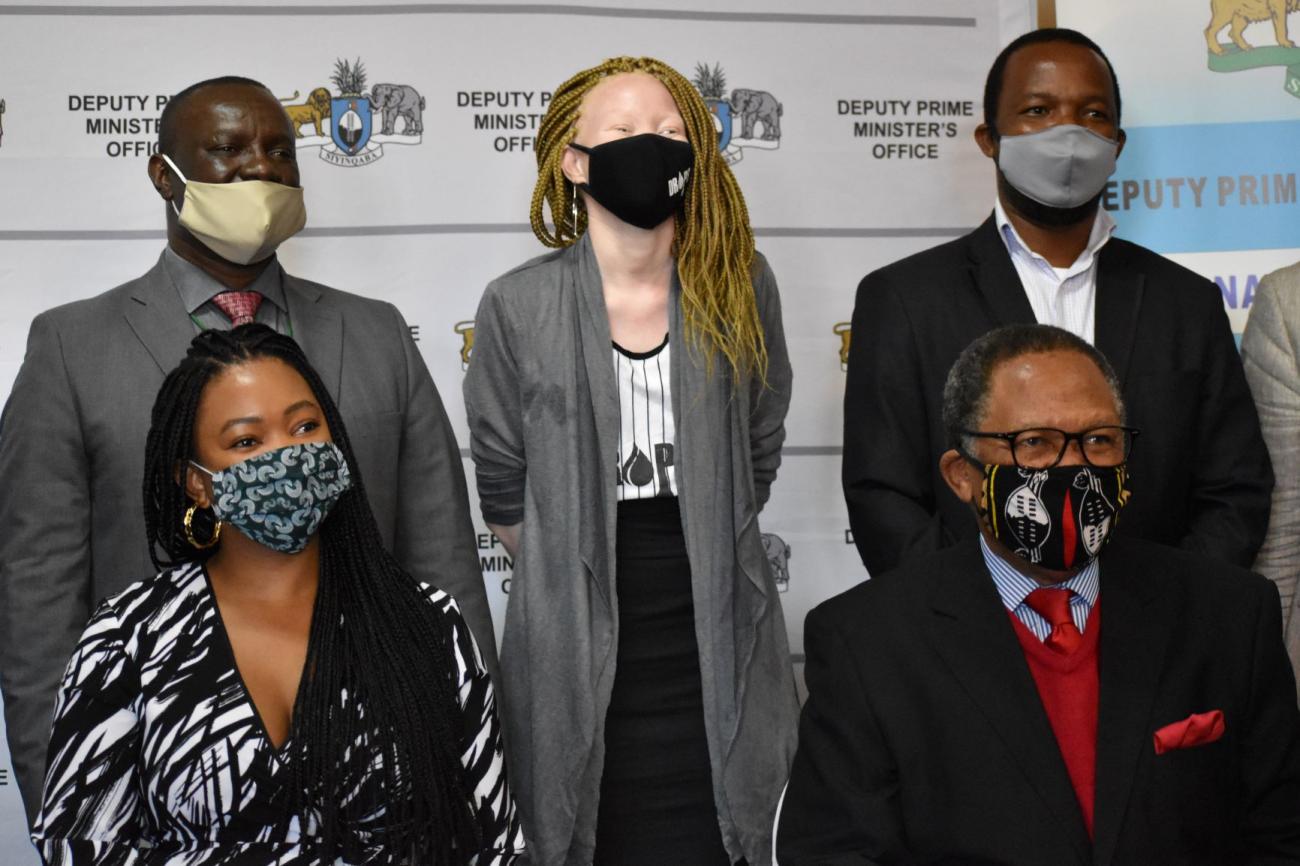UN Representative Joins the International Awareness Day for Persons with Albinism Celebration

On behalf of the UN Resident Coordinator; Ms Fanele Chester-Fakudze joined the annual Awareness Day for Persons with Albinism celebration at Mountain Inn.
In celebration of International Awareness Day for Persons with Albinism, UN representative, Ms Fanele Chester-Fakudze, joined the Deputy Prime Minister, members of the Albinism community, CANGO and High Commission representatives at the Deputy Prime Minister’s Office and Bible Society’s event at Mountain Inn, Mbabane.
The celebration took place on Thursday, 11th June: two days earlier than the annual commemoration, notably on 13th June, due to the date falling over the weekend this year.
The theme for this year’s celebration was, ‘Made to Shine’, and celebrated some of the incredible talent within the Albinism community such as Ms Nichole Dludlu, also known as ‘Miss Unique’, who performed two songs for guests.
Guests of honour addressed all those present with powerful speeches, including: the Deputy Prime Minister, H.E. Themba Masuku, Ms Fanele Chester-Fakudze, on behalf of the UN Resident Coordinator, representatives of CANGO, Eswatini Bible Society, the Human Rights Commission and President of the Association of Persons with Albinism
On behalf of the UN Resident Coordinator, Ms Chester-Fakudze stated: “International Albinism Awareness Day is a time to recognize, celebrate and stand in solidarity with persons with albinism around the world. The theme for this year’s celebration is ‘Made to Shine’. Simply put, this celebration is about creating a new perception about persons with albinism,”
“We need to see them in their positive light as survivors and conquerors of difficult circumstances who have emerged as heroes, role models and celebrities. Ms Dludlu, as we have witnessed today is our shining example. She is among many who are capable and willing to inspire others to break the barriers and shine their light to the world.”
People with albinism suffer the devastating consequences of stigma, discrimination and social exclusion, putting children and women in particular, at extreme risk of abuse, violence and isolation. Unfortunately, albinism is widely misunderstood, both socially and medically; with erroneous beliefs and superstitions leading to such discrimination and marginalization.
Sub-Saharan Africa bears witness to the most severe cases of violence against persons living with albinism; hundreds of attacks and killings have been reported in 28 countries across the region in the past decade. Worldwide, children with the genetic condition are often exposed to persistent name-calling, teasing and bullying.
In Eswatini, the social stigma associated with albinism has put the lives of many of those living with the condition at risk for the sake of ritual purposes or being accused of practicing witchcraft. The number of those living with the condition in Eswatini is largely unknown.
The COVID-19 pandemic has exacerbated the vulnerabilities of persons with albinism, as Ms Chester-Fakudze stated; “Each of us have the responsibility to protect and support our friends, family and neighbours at greatest risk of COVID-19, including those living with albinism. It is crucial that we educate the people of our nation about the condition and stand together, as one people, throughout and beyond the COVID-19 pandemic.”
In solidarity with all people with albinism, the United Nations Human Rights Council adopted a resolution in 2013 calling for the prevention of attacks and discrimination against persons with albinism. So too was the first Independent Expert on the Enjoyment of Human Rights by Persons with Albinism, Ms Ikponwosa Ero, appointed to the Council in 2015.
Ms Chester-Fakudze closed with the following; “Today, we stand in solidarity and support of our courageous brothers and sisters with albinism. Let us help persons with albinism shine.”




